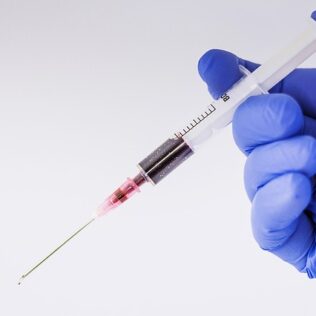Measuring troponin levels in patients with cardiac-related symptoms or who have recently had heart attacks helps physicians assess the damage and guides treatment decisions. The sooner medical professionals detect heart damage or cardiac conditions, the sooner they can administer the appropriate treatment. The efficient and accurate diagnosis of heart attacks can mean the difference between life and death for Indiana patients.
What Is Troponin?
Troponin is a group of proteins that regulate muscular constriction. There are three types of troponin found within the cardiac and skeletal muscles in the human body: t – troponin C, troponin I, and troponin T. Located between the actin filaments of non-smooth muscle tissues, each of these subunits serves a different function.
Troponin C binds to calcium ions, moving troponin I and initiating muscle contractions. Troponin I then blocks myosin interactions with actin and troponin T binds to tropomyosin and actin, anchoring the protein complex to the muscle fiber structure. While troponin C is the same in both skeletal and cardiac muscles, troponin I and troponin T from cardiac muscles exhibit unique gene coding. Health care providers can perform biochemical testing to identify elevated levels of these cardiac muscle enzymes.
How Are Troponin Levels Measured?
Troponin assays are done through simple blood tests. A sample of blood is drawn from patients, usually from the arm or hand, and is analyzed to identify the troponin subunit levels within the blood. The samples for troponin tests may be taken in physician’s offices, at independent labs, or in other medical facilities. Other than the potential for light bleeding and minor pain, there are few complications associated with troponin level testing.
When diagnosing and monitoring potential cardiac events, troponin tests may be repeated several times over the 24-hours following the suspected event. Since it takes time for troponin to be released into the bloodstream, performing the test too early could result in a false-negative result. Often, cardiac troponins are not detectable until up to four hours after an acute coronary event.
What Are Normal Troponin Levels?
Under normal circumstances, troponin levels within the blood are so low they are essentially untraceable. Measured in nanograms per milliliter, most labs consider the normal troponin range to be between 0 and 0.4 ng/mL, or below the 99th percentile in the blood test. With few exceptions, patients whose troponin levels fall within the normal range likely did not suffer a heart attack.
What Do Elevated Troponin Levels Mean?
Significantly elevated troponin levels could indicate that a person has suffered a heart attack. When the heart muscle cells suffer damage, troponin is released into the bloodstream in concentrations beyond the normal levels. Typically, the more significant the damage to the heart, the greater the troponin concentration in the blood.
Within three to four hours after suffering a coronary event, the troponin levels in the blood elevate and they may remain heightened for 10 to 14 days after the heart damage occurred. Under most circumstances, patients who suffer heart attacks exhibit significantly elevated concentrations of cardiac-specific troponin T and troponin I in their blood. Combined with other diagnostics, the presence of elevated levels may help medical providers assess the type of cardiac condition affecting patients and monitor for a worsening of their conditions.
What Other Factors Cause Elevated Troponin Levels?
Heart attacks are not the only coronary event that causes elevated troponin levels. Other types of heart injuries that may cause an increase in these cardiac muscle enzymes within the blood include:
- Congestive heart failure
- Cardiomyopathy
- Myocarditis
- Coronary artery spasm
- Atrial fibrillation
In addition to cardiac injuries or events, conditions in other parts of the body may cause increased troponin levels. These include chronic kidney disease, pulmonary embolism, and chronic obstructive pulmonary disease. Medical procedures, including open-heart surgery, cardiac stenting, heart defibrillation, and radiofrequency ablation can also result in heightened troponin levels.
How Are Acute Heart Attacks Treated?
Emergent treatment of acute heart attacks is focused on restoring blood flow and helping prevent further deterioration of the heart tissue. Medical professionals may administer a range of medications to help reduce blood clotting, relieve pain, and reduce the stress on the heart. Physicians may also perform procedures such as coronary angioplasty or coronary artery bypass surgery. Also known as stenting, coronary angioplasty involves the placement of a catheter to help open blocked arteries and restore blood flow. In bypass procedures, surgeons bypass blocked or narrowed coronary artery sections by sewing arteries or veins in place beyond them, re-establishing blood flow to the heart. The specific treatment plan may vary from one patient to the next and is largely guided by the cause of patients’ cardiac events and the severity of the damage their hearts have suffered.

